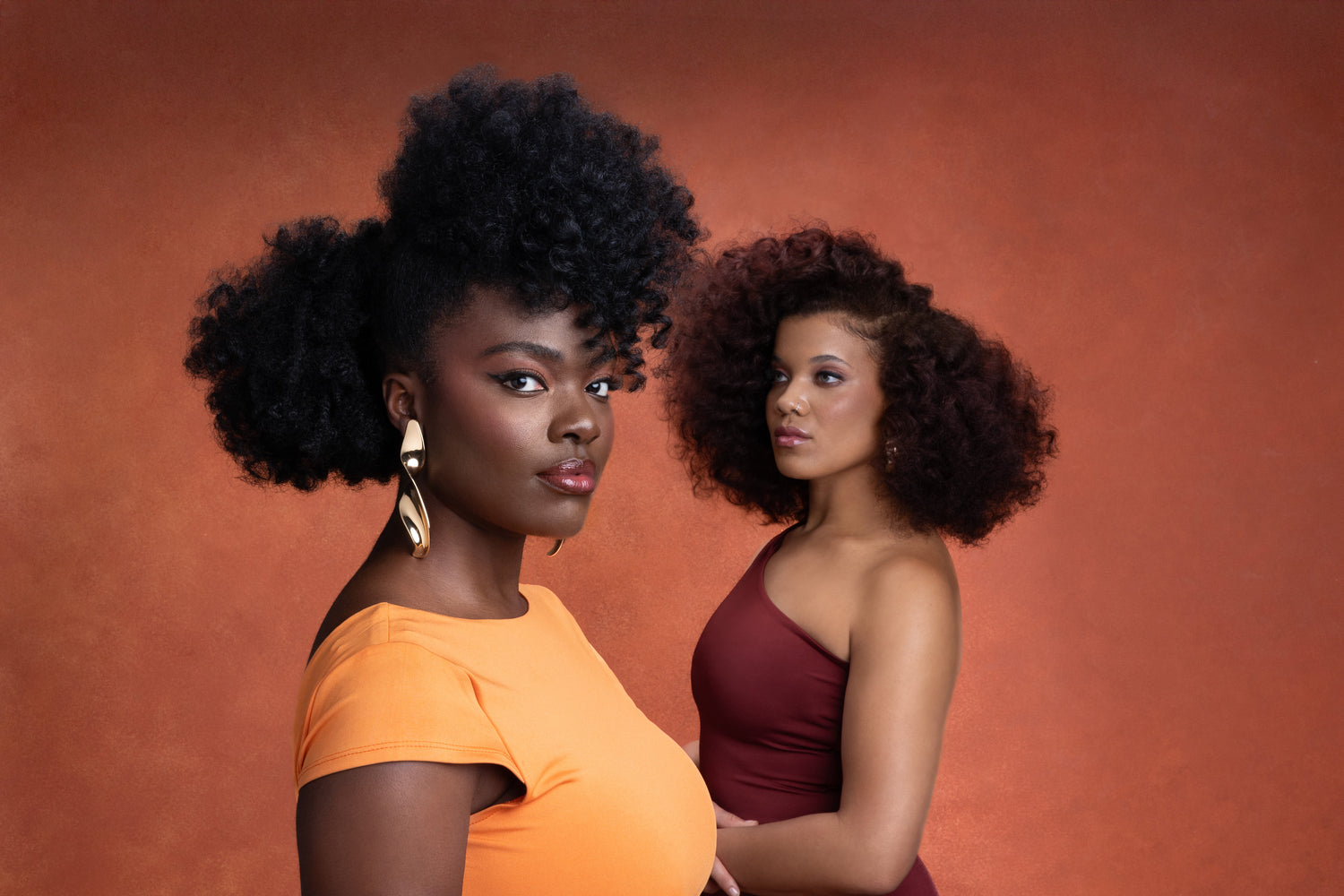How hard is Afro hair to manage, after all?
The main reason that people relax their hair is that they are led to believe that maintaining relaxed hair is faster and easier. There‘s a misconception that it takes hours and hours to get natural hair to "do what you want it to do."
In reality, the myth that learning how to look after Afro hair and properly maintain it requires a significantly greater amount of time is simply not true.
Finding out what makes your hair thrive before you apply any product is essential to seeing the progress of your hair. Working with your hair’s natural form as opposed to trying to emulate straighter styles will also make managing your hair easier. If you use good quality products in your routine, your afro hair will not only be manageable but it will look great too.
‘Wash Day’ Routine
Many people delay going natural because they hear stories of it taking a full day (i.e. the term “wash day”) to wash and condition their hair. A full treatment often looks like this:
- Pre-poo treatment (deep conditioning before shampoo, often done with an oil);
- Shampooing (hopefully with a sulphate-free shampoo);
- Post-shampoo conditioner;
- Protecting and moisturising (either with oils or oil-based products);
- Air drying or blow drying, and
- Styling.
Doing all of these in one day does sound like a lot but it doesn’t need to be this way. Many people simplify their routine by breaking down this list into smaller, more manageable hair care tasks. Others do so by using great products that help to speed up the process.
For example, you can shampoo and condition once every 7-10 days. Conditioning is an effective way of softening, moisturising and drying your hair shaft quicker.
Conditioners, similar to oils, prevent water from escaping from both the inside and outside of the hair shaft. Specifically, they create polar barrier that prevents the penetrated water from leaving the hair shaft while avoiding the water that is on the hair. Using oils creates a similar barrier but without any charge, meaning that they are less irritant to both your hair and skin. For this reason, oils are good to use before, after and during drying or styling.
Introducing natural but powerful oils to your routine can help you to break down the wash day routine into smaller parts. It can also keep your natural Afro hair healthy, which will make it easier to manage over time.
Drying
Some people roll their eyes at the thought of having to dry their hair. If blow or air drying your hair takes a long time, try some alternatives. Choosing a microfibre towel instead of a regular cotton towel is a much healthier option for your hair as it can absorb the excess water much more easily. The microfibre towel also reduces the strain and friction during blot drying and therefore reduces the chances of hair frizz, breakage and thinning.
Avoid blow drying your hair as it can damage Afro hair. Drying without heat is easier and leaves hair softer and stronger in the long run.
Protective Hair Styling
Merging the drying of your hair with the styling of it can help to reduce styling time. Moisturising your hair after drying with a microfibre towel and immediately twisting, flat twisting or twisting into an up-do, gets two things done in one! Your hair will dry in a ‘stretched’ way (which makes knots and tangles less likely, thus reducing breakage). A few days later you can, after lightly coating your hair in oil, unravel the dry twists to display a lovely, juicy twist out!
Protective styles are also a great way to keep your hair out of the way and in a form that will make it easier to manage whilst reducing management time. For twist outs and braid outs, we find that using the LOC method then applying a butter before twisting gives fantastic results.
Quality Hair Products
Stay away from products that provide slip and shine but to the detriment of your long-term hair health. Take silicones for example. The shine provided by them is artificial as it comes from the plastic in the silicone. Silicones also prevent moisture from penetrating into the hair shaft, meaning that your strands will attract dirt and build up.
After some initial shine, your hair will end up dull, limp and brittle, which opens the door to breakage. This can further lead to an increase in hair management as you’re then spending time trying to recover your hair from the state that it’s in.
Look for products that are free from sulphates, parabens and phthalates. When you try a new product, make sure you have a solid routine and you try it out for a decent period of time. For instance, if you use the LOC method and it isn't moisturising your hair, you could try a new oil and cream, you will notice a difference then you know it's the products and not the process.
Natural Afro hair isn’t hard to manage, it just needs a healthy routine, good quality products and a little bit of determination!

